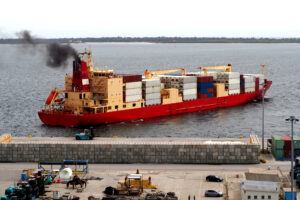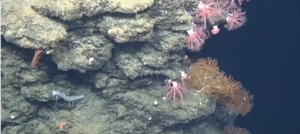BP invests $10 million in Maersk-backed WasteFuel, which plans to develop a global network of plants to convert municipal and agricultural waste into bio-methanol, a biofuel which could play a significant role in decarbonizing shipping.
Other investors in WasteFuel except Maersk have included i(x) Net Zero, Prime Infra, NetJets, Marc Benioff’s TIME Ventures, Guy Oseary, Aileen Getty and others, according to BP.
California-based WasteFuel, a US biofuel developer, plans to develop multiple bio-methanol plants in collaboration with local strategic partners including waste companies. WasteFuel expects its first project will be in Dubai and the company has a pipeline of additional projects to develop.
Under the related memorandum of understanding, BP will offtake the produced bio-methanol and will work together with WasteFuel to help optimize and improve bio-methanol production.
The intention of BP is to establish supplies of lower carbon alternative fuels for the shipping sector and to use its trading expertise to bring WasteFuel’s bio-methanol to market.
Globally, solid waste production totals about 2 billion metric tons annually and is expected to increase to 3.4 billion metric tons by 2050. WasteFuel’s deployment of anaerobic digestion and methanol production technologies will convert municipal and agricultural waste into viable lower emission alternatives to traditional fuels, like bio-methanol.
In sectors like shipping, bio-methanol has the potential to play a significant role in decarbonization. Maritime transport represents around 90% of trade worldwide, whilst producing 3% of global greenhouse gas emissions.
In the effort to reach net zero, some of the biggest companies in the shipping industry are converting to methanol-ready ships.
Gareth Burns, vice president of BP ventures, said: “WasteFuel projects will look to help with the growing volumes of global waste, whilst advancing the development of lower carbon solutions for hard-to-abate sectors. Achieving decarbonization in shipping will require a step-change, and biofuels have a key role to play in helping the industry to decarbonize. We look forward to working together on WasteFuel’s next stage of growth and market development.”
Trevor Neilson, Co-founder, Chairman and CEO of WasteFuel noted that “this investment from BP ventures is a significant milestone for WasteFuel as it will help scale the production of bio-methanol to decarbonize the shipping sector. As companies who are reliant on shipping work to reduce their greenhouse gas emissions, it is essential that we dramatically expand the availability of these fuels.”



